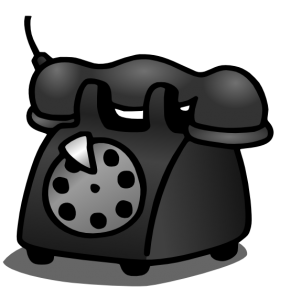Education classes and school administrators encourage phone calls home. Theory favors parental involvement as an element in educational success. Administrators want that open channel between parents and teachers.
That said, this advice comes from years of calling home. I’ve made a few phone calls I regretted. I’ve made more than a few useless calls, and one or two that bit me back. I still believe in calling, but I am more careful about those calls now.
Are you a new teacher? If so, depending on your background, I may have a warning for you. Those books and articles about not spanking kids? Those books and articles are read by readers. Not all your students’ parents will be readers. In some cultures, spanking remains commonplace. When you decide to make that phone call home, the person on the other end of the line may have a very different value system than your own. Keep in mind that you may precipitate a level of punishment you would not use personally. I’ve had parents give me verbal permission to spank their kid. When I told them I could not, they immediately promised to spank the kid for me if I called.
And when a kid seems off-the-charts messed up, I always try to keep in mind that his or her parents may be part of the problem. I am not saying that parents are necessarily the reason for challenging classroom behaviors. I taught a delusional child a few years ago with loving parents who I’d guess had little or nothing to do with the voices in his head. Still, I am not going to call that home without knowing more about my student’s background. Angry, bullying kids often come from angry, bullying homes.
Years ago, a seventh grade boy with a reputation for bullying came into my classroom early. I was tired and I’d frankly made a mess of my eye make-up putting it on in the dark*. He looked at me sympathetically: “Did your husband hit you, Ms. Q?” he asked casually, as if this were a regrettable but common occurrence.
Tip #13: If a kid breaks into tears and says, “Please! Don’t call home! They’ll beat me!” I recommend listening. That’s a call I’d pass on to the social worker, after I discussed the comment with the social worker. That’s also a kid to watch. Teachers are mandated reporters and you may find yourself needing to call child services at some point.
In general, I recommend waiting on calls until you are no longer feeling upset or frustrated with your student. Be sure to add a few good points about the student as part of any conversation. Those conversations should be versions of, “He’s very enthusiastic and energetic, but that energy is making it hard for him to stay in his seat.”
Eduhonesty: Some of those calls will be no-win scenarios, too. Try not to let those calls get you down. At some point, you will call “Felipe’s” house about his behavior and his mom will go straight to the attack, asserting that if you were a better teacher then Felipe would be a better student. If you knew how to manage a classroom, Felipe would never have squirted hand sanitizer on Olivia’s back. Some parents fight for their kids with a complete disregard for the facts. I suspect nearly every teacher who calls home has heard a version of, “I can’t believe that. You must be wrong. He never does that at home.”
*That might have been the last time I put on make-up while sitting at stoplights in the dark. That year, I had to leave for work at 5:00 AM because of my commute.

